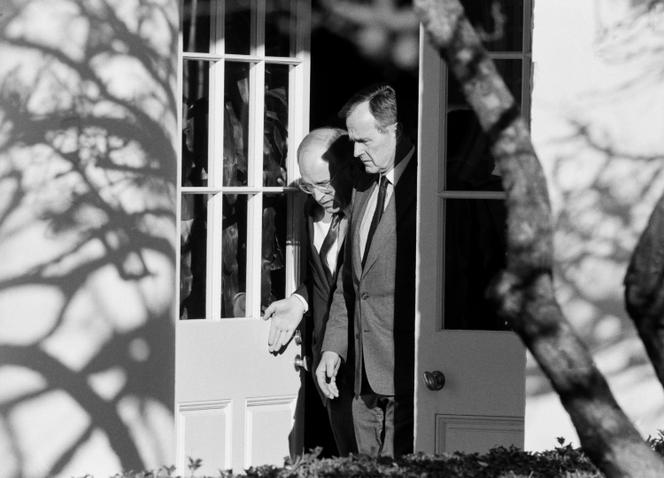


Surprisingly, comments on Iran's massive attack on Israel on April 13 failed to take into account the precedent of Iraqi strikes against Israel in January 1991. Yet there had been serious fears of a regional conflagration at the time, five months after the invasion of Kuwait by Saddam Hussein's regime. In addition, the risk that Iraqi missiles might be equipped with chemical warheads had contributed to dramatizing the crisis. Benjamin Netanyahu, then Israel's deputy foreign minister, caused a sensation by donning a gas mask in the middle of an interview with the American channel CNN, as warning sirens sounded. "We would like to see that threat removed. I cannot tell you when, I cannot tell you where, and I cannot tell you how, but we will make sure that Israel is safe," he hammered home, words he would probably not disown three decades later.
The regional context was certainly very different. In August 1990, Hussein had launched his troops against Kuwait, which was soon occupied and annexed. This war of aggression provoked widespread international condemnation, including in the Arab world. Saudi Arabia felt directly threatened by Iraqi expansionism, to the point of requesting the deployment of hundreds of thousands of American troops on its soil.
This operation, dubbed Desert Shield, led to the formation of a vast anti-Iraq coalition, under the aegis of the US. Washington ensured that Hafez al-Assad's Syria and Hosni Mubarak's Egypt joined the coalition, relying on the profound hostility of these two autocrats towards Hussein, as well as on the desire of Damascus and Cairo to counter Baghdad in the Middle East. The Iraqi dictator had reacted by posing as a champion of the Palestinian cause in the face of Israel's repression of the Intifada, the uprising in Gaza and the West Bank, occupied since 1967.
Hussein could denounce the "double standards" of an American-inspired mobilization against the occupation of Kuwait, even though the US had accepted the persistence of Israel's occupation of the Palestinian territories for a whole generation. But the boasts of Iraqi propaganda did little to conceal Baghdad's desire to loosen the stranglehold of the Washington-led coalition, by involving Israel in the crisis and thus trapping Syria, Egypt and Saudi Arabia.
On January 17, 1991, US President George H. W. Bush launched the Desert Storm bombing campaign against Hussein's forces in Kuwait and Iraq. The very next day, Iraq fired a dozen Scud missiles into Israeli territory. The American president forbade Israeli Prime Minister Yitzhak Shamir from retaliating in any way against Iraq. But he ordered the deployment in Israel of Patriot anti-missile batteries, operated by American military personnel, which limited Israeli losses to two deaths over more than a month. In fact, Hussein did not use chemical weapons against Israel any more than he did on the Kuwait front, from which his troops were expelled within a few days at the end of February 1991.
You have 44.53% of this article left to read. The rest is for subscribers only.
